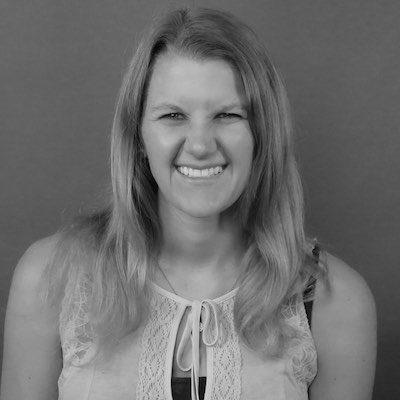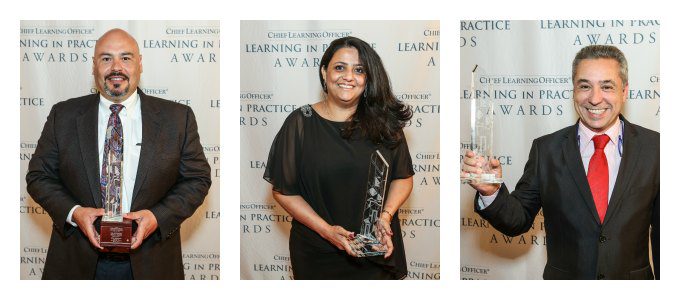From Left: Eric Gutierrez, Kuntal McElroy, Jose Miguel Caras
Gold
Eric Gutierrez
manager of construction,
Bechtel Corp.’s Oil,
Gas & Chemicals
Manager of Construction, Bechtel Corp.’s Oil, Gas & Chemicals
Global engineering, procurement and construction company Bechtel has completed projects in 160 countries over all seven continents. It takes on construction projects in varying geographic areas, from cosmopolitan U.S. cities to the Australian outback.
The company often works on projects in remote locations that don’t have highly skilled carpenters, electricians or construction workers. Because construction can threaten workers’ safety, skilled and highly capable workers and foremen are critical.
Pioneering program High Performance Crew, or HPC, developed workers’ bodies and brains, allowing craft workers to learn in a safe place, develop sound business judgment and become competent leaders. Participants learn how to become a role model and guide to their crews.
HPC has successfully increased the value of craft workers, creating a viable career path for them and producing a more capable workforce. For instance, foremen know how to productively manage a crew, costs and create a safe working environment.
The company has seen many long-term effects, such as retention of skilled craft workers, which had produced substantial savings in recruiting and training costs.
Some 70 percent of crew workers, in general, follow their foremen to the next job, and now more foremen as well as crewmen choose Bechtel for future jobs rather than to move on to competitors, according to the company. Also, 36 percent of HPC graduates have received promotions.
Silver
Kuntal McElroy
Kuntal McElroy
Head of Learning and Development, Ericsson North America
Ericsson is well-known in the rapidly changing communications technology environment, providing equipment, software and services to enable transformation through mobility.
But business these days can be tough. The company’s technical delivery organization had to increase revenue by 50 percent from 2013 and had six months to do so. It had to put almost 8,000 employees through aggressive sales training to achieve this goal, and the training had to be cost efficient.
Ericsson developed an e-learning course to accomplish this. The course cost $16 million less than instructor-led training. Through decision-based simulations, employees learned how to increase customer loyalty and engagement and how to obtain add-on-sales in order to increase revenue.
This resulted in a 19 percent increase over the initial $150 million revenue goal. All but four employees passed the associated evaluation without having to retake it. They also developed sustainable skills that could be useful for future opportunities.
Bronze
Jose Miguel Caras
Director of Training and Development, Banco Santander
In 2013, Banco Santander had to acknowledge the harsh financial reality in Spain thanks to recession and high unemployment. Jose Miguel Caras, director of training and development, sought to transform Banco Santander into a better bank for clients rather than being a sales-oriented bank — one seen as simple, personal and fair.
It began an 18-monthlong initiative to teach 550 managers how to build a good relationship with clients. As a result, mystery shoppers consistently reported positive experiences and staff treatment. Also, client satisfaction increased 7 percent from 2013 to 2014, the bank reported.
In 2013, Banco Santander had to acknowledge the harsh financial reality in Spain thanks to recession and high unemployment. Jose Miguel Caras, director of training and development, sought to transform Banco Santander into a better bank for clients rather than being a sales-oriented bank — one seen as simple, personal and fair.
It began an 18-monthlong initiative to teach 550 managers how to build a good relationship with clients. As a result, mystery shoppers consistently reported positive experiences and staff treatment. Also, client satisfaction increased 7 percent from 2013 to 2014, the bank reported.












